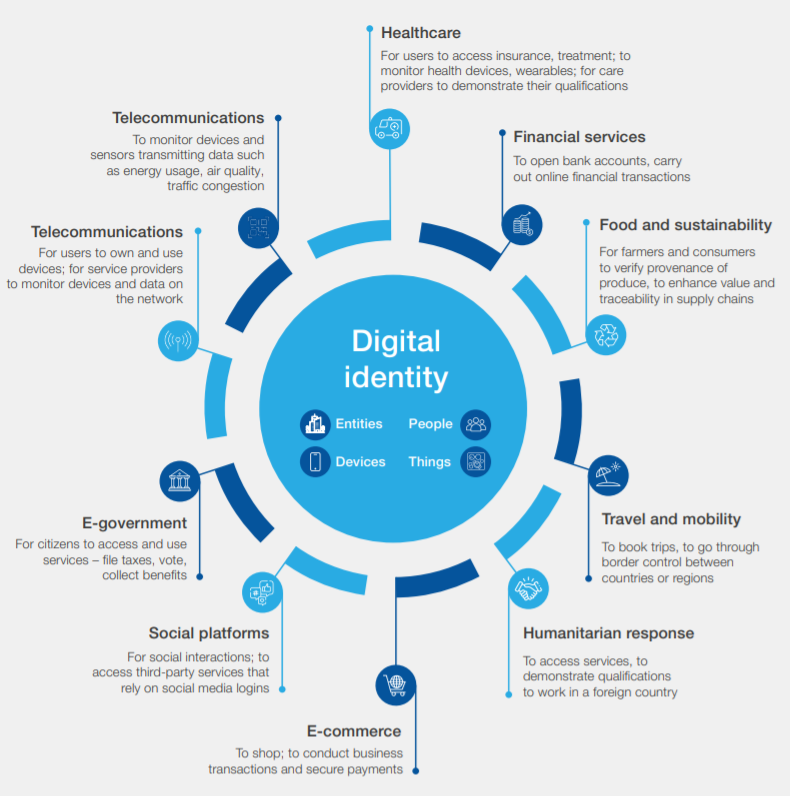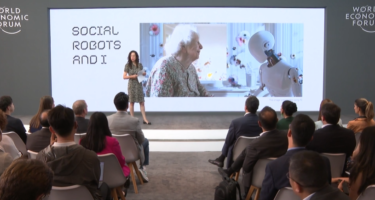Unelected globalists want programmable CBDC, digital ID to rule the metaverse: perspective
The Bank for International Settlements (BIS) continues its push for the adoption of programmable Central Bank Digital Currencies (CBDCs) and tokenized deposits, this time highlighting the metaverse as an entry point in a new report.
“Wholesale CBDCs, whose use is confined to financial institutions, could form a basis to support tokenized deposits and the tokenization of real and financial assets. They could potentially support cross-border transactions through multi-CBDC arrangements”
Bank for International Settlements, The economic implications of services in the metaverse, February 2024
According to the BIS report, “The economic implications of services in the metaverse:”
“If the metaverse becomes macroeconomically relevant, the payment instruments that win in this competition may see a substantial boost in their overall adoption.”
The authors list several potential payment systems, including, “traditional payment cards, new digital payment providers, cryptocurrencies, CBDCs and (interlinked) fast payment systems.”
However, they say that crypto assets are too volatile and that some of the more traditional means of payment are too slow with cross-border complications.
Therefore, they make the case for “a system or interlinked fast payment systems, tokenized deposits or central bank digital currencies,” which “could allow for instant, verifiable payments and could thus form a superior alternative to volatile speculative assets” that “could also support programmability and tokenization in virtual environments.”
“In principle, retail fast payment systems, retail central bank digital currencies or tokenized deposits could be designed to support services in the metaverse”
Bank for International Settlements, The economic implications of services in the metaverse, February 2024
Tokenized deposits and CBDCs are both programmable forms of digital payments that work in tandem with one another, and according to the World Bank, “a CBDC network and fast payments do not necessarily have to compete. One potential option in this space would be using the FPS payment rails for CBDCs.”
So, when bankers talk about CBDC, tokenized deposits, and fast payment systems (FPS), they can all basically complement one another.
The BIS defines CBDCs as “a digital payment instrument, denominated in the national unit of account, that is a direct liability of the central bank,” but this definition is incomplete as it leaves out the whole notion of programmability.
Programmability means public and private entities can program restrictions on CBDCs, so that you are limited on what you can buy or sell, where you can make transactions, and when.
Other key feature missing from the definition of CBDC is that all transactions would be recorded on a unified programmable ledger, and that CBDCs cannot operate without digital identity, so they will never be as private or anonymous as physical cash.
As for tokenized deposits, the BIS defines them as “digital representations of commercial bank deposits in a programmable platform.”
According to the report, “tokenized deposits could play a role in facilitating virtual exchange” by “allowing for real-time, automated payments that can be made contingent on certain actions (eg transfer of virtual property in the metaverse, completion of specified tasks).”
While the authors list several potential payment options for the metaverse, they are clearly in favor of CBDCs and tokenized deposits.
They say that “CBDCs, too, could be designed to facilitate requests for payment and proof of payment in a domestic or cross-border setting, thus supporting metaverse services. CBDCs are increasingly relevant as a financial policy and plumbing question. BIS surveys have found that more central banks are exploring the design of CBDCs and more pilots are going live.”
As mentioned earlier, a CBDC cannot operate without digital identity.
“Identification at some level is hence central in the design of CBDCs. This calls for a CBDC that is account-based and ultimately tied to a digital identity“
Bank for International Settlements Annual Economic Report 2021
According to the Bank for International Settlements (BIS) Annual Economic Report 2021:
“The most promising way of providing central bank money in the digital age is an account-based CBDC built on digital ID with official sector involvement.”
And digital identity is shaping up to be your passport to the metaverse, according to the globalists at the World Economic Forum (WEF).
Published ahead of the 2023 annual meeting, the WEF and Accenture briefing paper “Interoperability in the Metaverse” highlighted that digital identity would be a key component in the coming metaverse.
“Digital identity is the nexus to an interoperable metaverse,” the report reads, adding, “It enables accountability and the capacity to traverse worlds with minimal friction.”
A digital identity stores your credentials and keeps a record of your behavior, including your digital wallet, what you share on social media, the websites you visit, your credit history, health status, and your geolocation, among many other data points.
“This digital identity determines what products, services and information we can access – or, conversely, what is closed off to us”
Identity in a Digital World, WEF, 2018

Seamlessly navigating the metaverse means that each user will have to have at least one avatar, linked to their digital identity, and this will act like a passport to various experiences in both the physical and digital realms.
According to a WEF insight report on digital identity from 2018, “This digital identity determines what products, services and information we can access – or, conversely, what is closed off to us.”
The same concept would apply to digital identity in the metaverse.
In the end, unelected globalists want programmable CBDC and digital ID to rule the metaverse.
Image by freepik [cropped]











